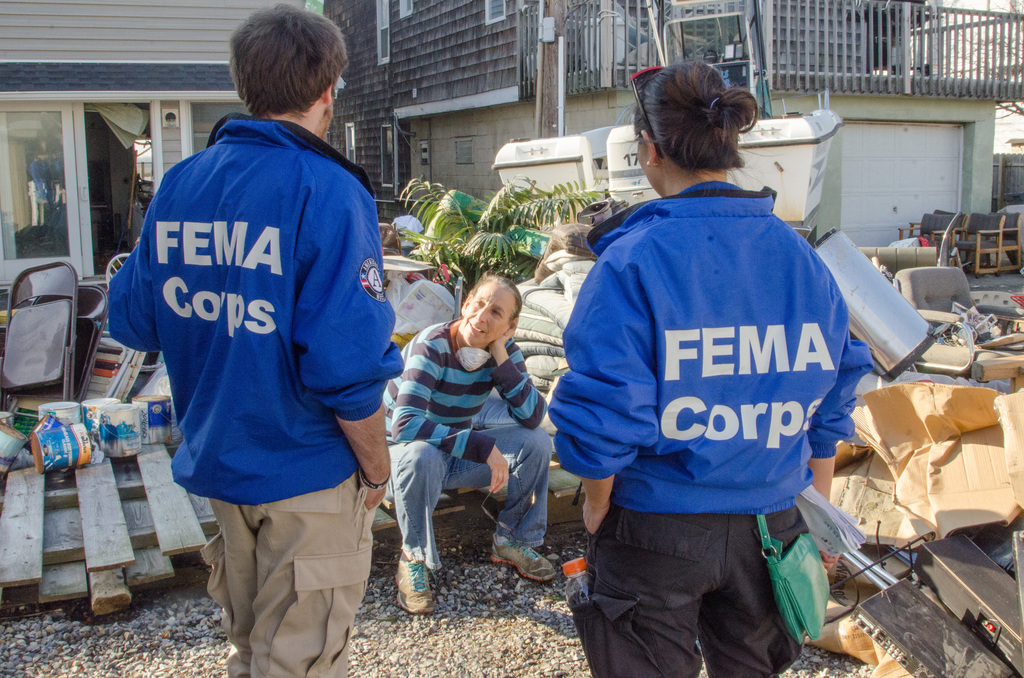On Sept. 13, Orange County Mayor Teresa Jacobs was notified that Orange County qualified for FEMA assistance through the Major Disaster Declaration for the State of Florida. Other counties included in the Declaration: Brevard, Broward, Charlotte, Citrus, Clay, Collier, DeSoto, Duval, Flagler, Glades, Hardee, Hendry, Hernando, Highlands, Hillsborough, Indian River, Lake, Lee, Manatee, Marion, Martin, Miami-Dade, Monroe, Okeechobee, Orange, Osceola, Palm Beach, Pasco, Pinellas, Polk, Putnam, Sarasota, Seminole, St. Johns, St. Lucie, Sumter, Volusia.
Through this declaration, FEMA will provide the following local assistance:
Temporary Housing: Money to rent a different place to live or a temporary housing unit (when rental properties are not available).
Repair: Money for homeowners to repair damage from the disaster that is not covered by insurance. The goal is to repair the home to a safe and sanitary living of functioning condition. FEMA may provide up to the IHP maximum for home repair then the homeowner may apply for a Small Business Administration disaster loan for additional repair assistance. FEMA will not pay to return a home to its condition before the disaster. Flood insurance may be required if the home is in a Special Flood Hazard Area. Repair and replacement items include:
- Structural parts of a home (foundation, outside walls, roof)
- Windows, doors, floors, walls, ceiling, cabinetry
- Septic or sewage system
- Well or other water system
- Heating, ventilating and air conditioning system
- Utilities (electrical, plumbing and gas systems)
- Entrance and exit ways from the home, including privately owned access roads
- Blocking, leveling and anchoring of a mobile home and reconnecting or resetting its sewer, water, electrical and fuel lines and tanks
Replacement: Money to replace a disaster-damaged home, under rare conditions, if this can be done with limited funds. FEMA may provide up to the IHP maximum for home replacement. If the home is located in a Special Flood Hazard Area, the homeowner must comply with flood insurance purchase requirements and local flood codes and requirements.
Semi-Permanent or Permanent Housing Construction: Direct assistance or money for the construction of a home. This type of assistance occurs only in very unusual situations, in locations specified by FEMA, where no other type of housing assistance is possible. Construction shall follow current minimal local building codes and standards where they exist, or minimal acceptable construction industry standards in the area. Construction will aim toward average quality, size, and capacity, taking into consideration the needs of the occupant. If the home is located in a Special Flood Hazard Area, the homeowner must comply with flood insurance purchase requirements and local flood codes and requirements.
Other Needs Assistance: This provision of the Individuals and Households Program provides grants for uninsured, disaster-related necessary expenses and serious needs. Flood insurance may be required on insurable items (personal property) if they are to be located in a Special Flood Hazard Area. Assistance includes:
- Medical and dental expenses
- Funeral and burial costs
- Repair, cleaning, or replacement of:
- Clothing
- Household items (room furnishings, appliances)
- Specialized tools or protective clothing and equipment required for your job
- Necessary educational materials (computers, school books, supplies)
- Clean-up items (wet/dry vacuum, air purifier, dehumidifier)
- Fuel for primary heat source (heating oil, gas)
- Repairing or replacing vehicles damaged by the disaster, or providing for public transportation or other transportation costs
- Moving and storage expenses related to the disaster (including storage or the return of property to a pre-disaster home)
- Other necessary expenses or serious needs (for example, towing, or setup or connecting essential utilities for a housing unit not provided by FEMA)
- The cost of a National Flood Insurance Program group flood insurance policy to meet the flood insurance requirements
To apply by phone for FEMA assistance, call:
1-800-621-FEMA
TTY: 1-800-462-7585
711 or VRS: 1-800-621-3362
Make the process either by having the following information handy when you call FEMA to apply:
- Social Security Number
- Insurance Information
- Damage Information
- Financial Information
- Property Address and Phone Number
- Direct Deposit Information (optional)





Comments